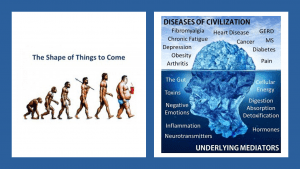At Dr Ben Phillips.com I focus on the impact of stress as a profound and inescapable factor in determining health and wellbeing.
I have a very broad definition of stress that is important to understand.
This definition helps to explain some of the broader impact or potential value of both Chiropractic Care and Health & Wellness Coaching. It also helps you understand how making change in your life to reduce these stressors has the potential to reduce the risk of significant chronic ill-health as you continue in life.
We have all heard the term. Yet some people have a more limited definition of what ‘stress’ is and how relevant it may be in their lives.
Some people assume that whether or not the FEEL ‘stressed out’ is the marker for them, and if they’re not, they ignore the topic and its potential effects on their health and wellbeing.
It is important in any conversation about stress to understand some general concepts:
- It is NOT just Worry!
- In a general sense it is neither good, nor bad.
- A stressor is simply a stimulus in your internal or external environment that causes your body to change its physiology / function / behaviour.
- What is stressful for one person, may not be for the next person.
Going for a run could be considered stressful – in that the brain instructs the heart and lungs to operate differently to respond to the different (greater) demand.
POTENTIAL stressors MAY (or may not) affect you and your function or trigger your stress response, while in others they may be more significant.
One of the original researchers into the impact and effects of stress (Canadian physiologist, Hans Selye) coined two terms to differentiate these two potential outcomes of stressors – EUSTRESS was his term indicating a positive or ‘good’ effect, while DISTRESS indicated a negative or harmful effect.
The factors that determine its impact on your life, and whether it may be ‘good’ or ‘bad’ in your individual case are many.
They include your health history, beliefs, memories, psychology and a whole lot more.
In this article, let’s limit our conversation to two things – the overall LOAD (ie, the combined ‘quantity’ of stress over time) and the flexibility of your body, particularly your nervous system – it’s ability to cope with, respond to, and adapt to this combined load or individual stressors.
If your nervous system is not flexible enough to adapt to or dissipate the stress efficiently or effectively and/or if it is maintained over time stress-load may build up, become dominant and begin to overwhelm your body's control systems (this is what disease is).
A specific event / trauma may be a 'straw on the camel's back' triggering a symptom or disease, however it is common to find that the combined 'load' has 'primed' your nervous system toward overwhelm. Many stresses are due to our lifestyle choices and behaviours. They affect how we function and how well or how quickly we heal.
However if you have the ability to cope with the load on your body and mind, this stress effectively becomes fuel to drive you to the next level of function, productivity and performance.
The ability to cope or adapt can be explained through the concept of the ‘General Adaptive Potential’
For more on the General Adaptive Potential, follow this link.
If the load over time exceeds the limits of your General Adaptive Potential (your ability to integrate or adapt to that load), the impact on your body will be a negative one and you will pay a price.
The definition of a ‘negative’ stressor (one that causes distress to the body) is something that indicates either a TOXICITY LOAD or a DEFICIENCY STATE for the body.
More here on Toxicity & Deficiency as the negative stressors that impact us all
Stressful stimuli (“stressors”) cause your body to respond in a specific way every time. This has been called the “fear/protection” or “fight/flight” reaction. Left long enough it can lead to a state called ‘Sympathetic Dominance which is effectively an over-reaction and exhaustion state where a range of seemingly unconnected symptoms can begin to affect you.
For more on the fear/protection reaction, click here.
For more on Sympathetic Dominance click here (article to come).
Our definition of a negative stressor is something that is either toxic to the body or something the body is deficient in that in needs for optimal living.
Toxicity or Deficiency can occur in any of 3 categories or domains: Physical, Chemical or Mental-Emotional.
For more on the 3 Domains of Stress click here (article to come).













